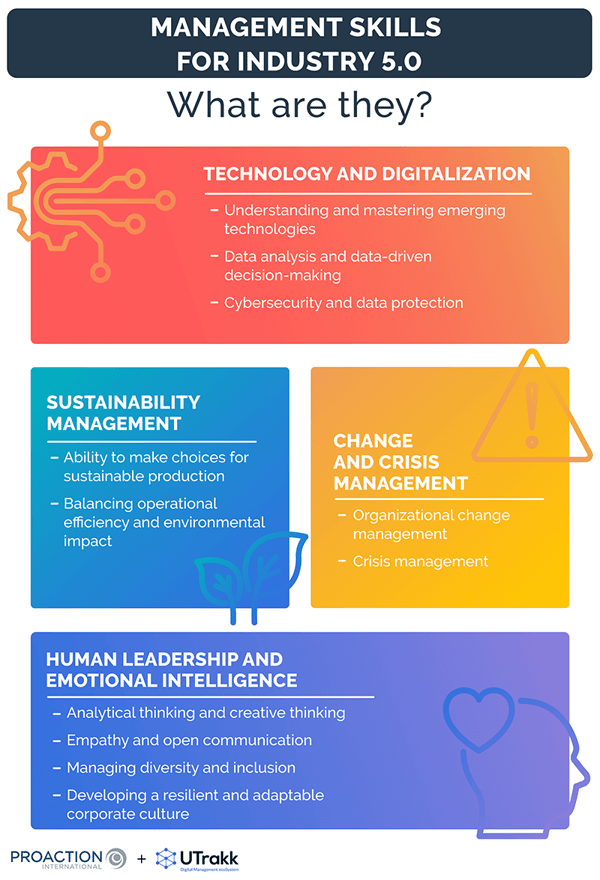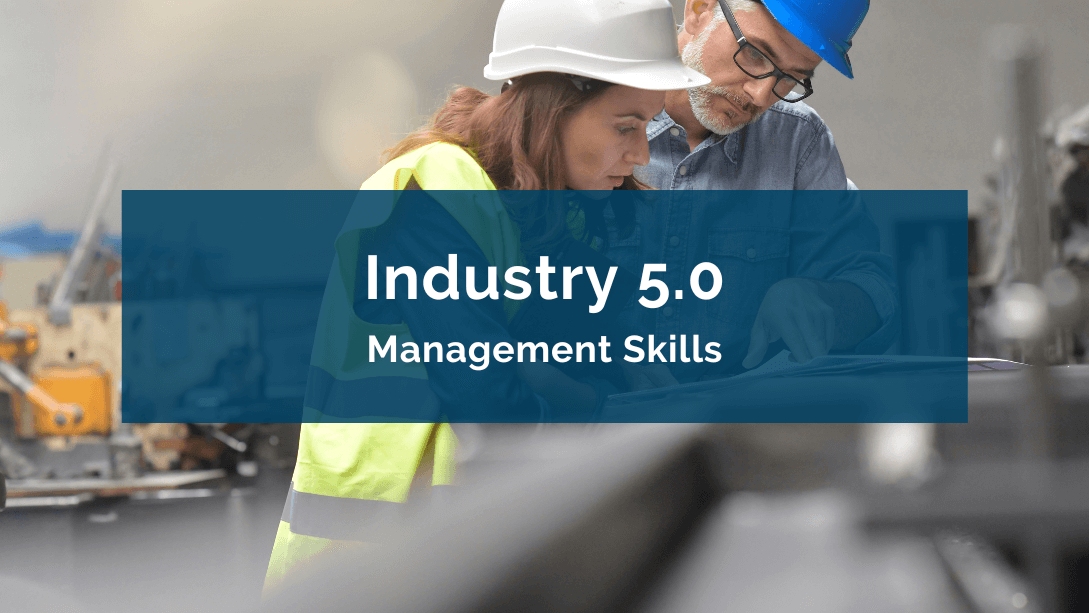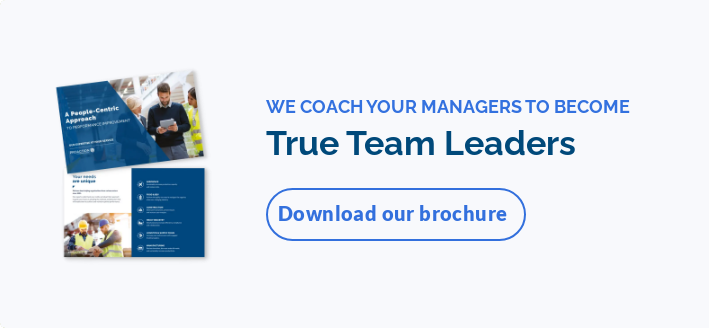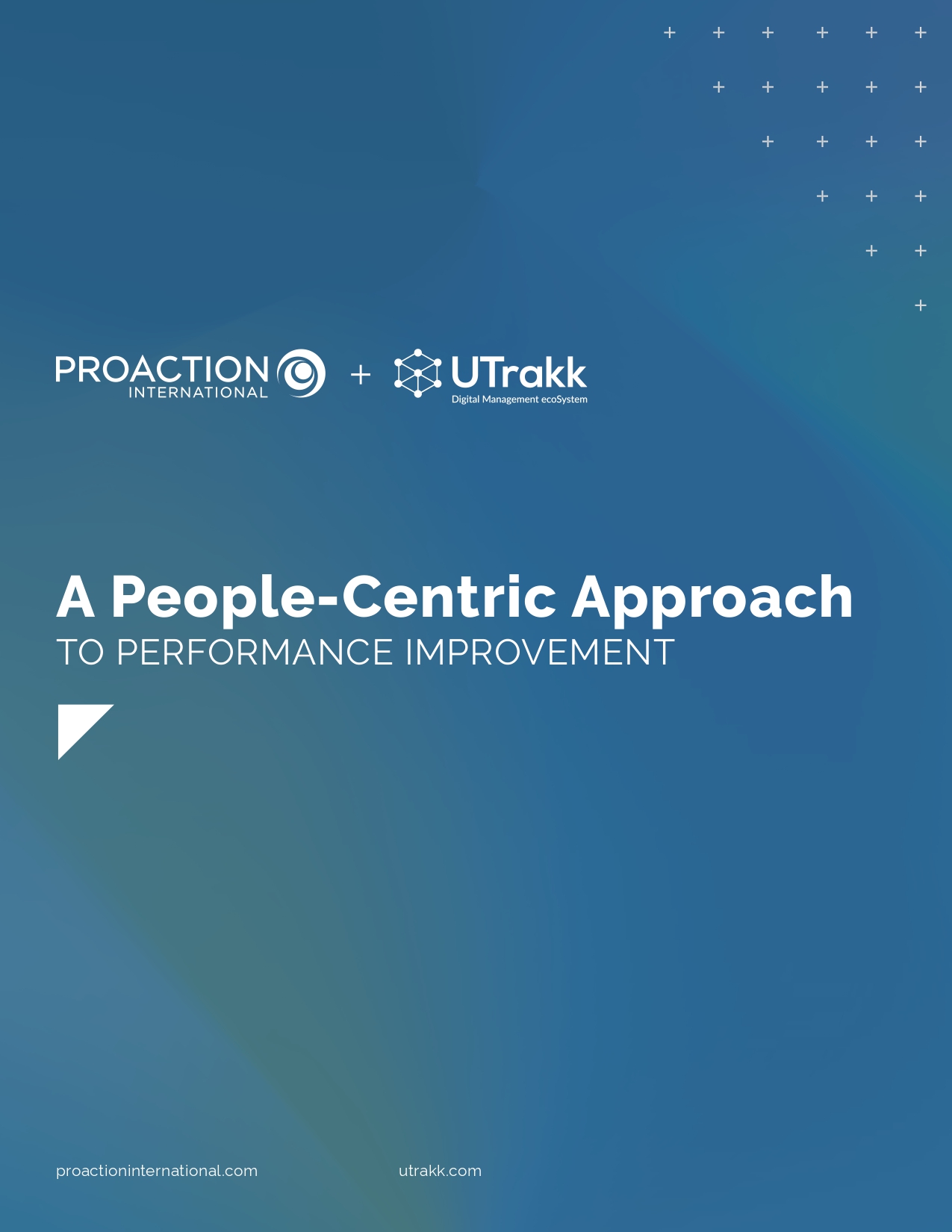Industry 4.0 and Industry 5.0: Back to basics
The next primary phase in the manufacturing sector, Industry 5.0 is characterized by human-machine collaboration to achieve optimized industrial production. It relies on the advanced technologies of the fourth industrial revolution, such as artificial intelligence (AI), the Internet of Things (IoT), robotics, augmented reality, and mega-data, while putting the human back at the center of the manufacturing process.
Industry 5.0 embraces connectivity, mass customization, sustainability, efficiency, and employee well-being. It creates a balance between productivity and social and environmental responsibility. The goal? A future where new technology and humanity progress together for a more ethical and ecological industry.
Industry 5.0 recognizes the power of industry to achieve societal goals beyond jobs and growth to become a resilient provider of prosperity, ensuring that production respects the limits of our planet and placing the well-being of the industrial worker at the center of the production process.
Why does the 5.0 era require new management skills?
The arrival of Industry 5.0 means a profound transformation of the industrial landscape. This metamorphosis calls for a reassessment of traditional managerial skills, as it requires a mastery of technological innovations and a humane and responsible approach to leadership. Managers must learn to evolve in a context where flexibility, adaptability, and the ability to inspire and innovate are crucial.
By increasing people’s confidence, sense of well-being, and resilience to stress, Human-Centered Leadership has the potential to help people adapt more easily.
Key management skills for Industry 5.0

Technology and digitalization
Understanding and mastering emerging technologies
A good knowledge of cutting-edge technologies such as artificial intelligence (AI), robotics and the Internet of Things (IoT) is imperative.
Managers must understand how they can be integrated into business processes to improve productivity, product quality, and customer experience.
AI and big data is the number three priority in company training strategies from now until 2027, and number one priority for companies with more than 50,000 employees.
Future of Jobs Report, World Economic Forum
Data analysis and data-driven decision-making
Being able to collect, analyze, and interpret large quantities of data to make informed decisions is more relevant than ever.
Managers must use the right digital tools to spot trends, optimize operations, and anticipate market needs.
Cybersecurity and data protection
In the face of increasing digitization and a wealth of data, information security is a top priority.
Managers 5.0 must know this and apply best practices for data protection within their organization.
Human leadership and emotional intelligence
Employers estimate that 44% of workers’ skills will be disrupted in the next five years. Cognitive skills are reported to be growing in importance most quickly.
Future of Jobs Report, World Economic Forum
Analytical thinking and creative thinking
The highest priority for skills training from 2023-2027 is analytical thinking, which is set to account for 10% of training initiatives, on average. The second priority for workforce development is to promote creative thinking, which will be the subject of 8% of upskilling initiatives.
Future of Jobs Report, World Economic Forum
These two forms of thinking, though distinct, are complementary and essential in the 5.0 era. The former provides a solid foundation for understanding problems and objectively evaluating options, while the latter opens the door to innovation and allows the exploration of new possibilities. Together, they enable managers to design and implement innovative, workable solutions.
Empathy and open communication
Empathy and effective communication are crucial to fostering meaningful relationships and creating a rich and motivating work environment.
Managers must understand the perspectives and needs of each team member, encouraging a culture of open and constructive feedback. It includes active listening, emotional intelligence, and recognizing individual contributions.
As part of a global survey last year, Boston Consulting Group (BCG) asked 6,000 people what attributes they want most from their leaders at work. The top four qualities are all related to what BCG calls actions of the “heart” (emotional well-being). Respondents said they most want more recognition, coaching, listening, and caring from their leaders.
Debbie Lovich, Managing Director and Senior Partner, BCG in Time
Managing diversity and inclusion
The human side of 5.0 is also characterized by increased diversity, with teams rich in varied skills and different cultural backgrounds, all combined with the capabilities of intelligent machines.
It requires managers who promote inclusion and a working environment where everyone feels considered.
Developing a resilient and adaptable corporate culture
The leader 5.0 embraces change and establishes a corporate culture of innovation and resilience.
Managers must be models of flexibility for other workers, showing how to adapt quickly to new technologies and market developments. They must also encourage continuous learning and perseverance.
The third major element of an irresistible organization is the need to build a flexible, humane, and inclusive workplace.
Sustainability management
Ability to make choices for sustainable production
Sustainable production means adopting practices that reduce the environmental impact of industrial activities while maintaining profitability. Managers must be at the forefront of implementing clean technologies, optimizing the use of resources, and developing non-polluting products.
It involves integrating recycling, waste reduction into production processes, raising awareness of the importance of sustainability, and integrating ecological objectives into the company's strategic plans.
Balancing operational efficiency and environmental impact
One of the top challenges for managers is to strike the right balance between improving operational efficiency and reducing environmental impact.
They must use relevant manufacturing KPIs and adopt technologies and working methods to enhance productivity and sustainability.
Change and crisis management
Organizational change management
Managers need to communicate effectively the reasons for change, minimize employee resistance, and encourage engagement.
It includes implementing clear transition plans and providing ongoing training to skilled workers.
Crisis management
Crisis management involves identifying potential risks, preparing contingency plans, and responding effectively when a problem arises.
Key skills include assessing the situation quickly, making decisions under pressure, and communicating transparently with all stakeholders.
Critical thinking is also an essential skill for problem-solving. It enables managers to evaluate data, trends, and potential scenarios, promoting decision-making based on evidence rather than supposition.
Finally, managers must build resilient teams capable of adapting and returning from disruptions, thus ensuring business continuity.
How to develop management skills to reach leadership 5.0
1. Continuing education and adaptive learning
These two flexible approaches enable managers to keep abreast of the latest trends, technologies, and management methods. Here are a few examples:
- Specialized training programs
- E-learning and self-study
- Workshops and seminars
By engaging in a continuous learning process, business leaders can better understand and exploit the opportunities offered by digital technologies while cultivating a heightened sensitivity to sustainability issues and human needs within the company.
Adaptive learning, customized to each individual's needs, strengthens the ability to work in a constantly changing environment, solve problems, and make strategic decisions.
For leaders to dramatically change their performance management approach, they must give managers the resources and training they need to meet the new requirements for employee development and improved performance.
Gallup, It’s the Manager
2. Coaching, mentoring, and participative leadership
These approaches foster a context where knowledge sharing, practical experience, and collective commitment are the driving forces behind professional development.
Coaching offers personalized guidance and support, helping managers overcome their challenges, hone their skills, and achieve their leadership goals.
By linking managers to experienced leaders, mentoring facilitates the transfer of know-how by allowing the latter to share their knowledge and experience with newcomers.
At the same time, collaborative leadership encourages inclusion and collaboration, enabling teams to contribute actively to complex decision-making and innovation. Such democratic management strengthens team cohesion, stimulates creativity, and paves the way for more agile and responsive management.
3. External learning
This approach encourages the assimilation of new ideas and strategies that can be adapted and applied by managers within their organizational context, enriching their arsenal of managerial skills. For example, external learning can be done through:
- Partnerships and professional networks
- Industry conferences and events
- Benchmarking and case studies
By cultivating links beyond their sector and company, external learning opens the door for managers to a vast exchange of knowledge and experience. Not only does it enable them to stay at the forefront of technological and managerial developments, but also to develop a particular spirit of innovation.
The example of the new Deloitte Canada smart factory
In Montreal in January 2023, Deloitte Canada inaugurated its "smart factory", the first of its kind. It integrates an interconnected ecosystem of more than 20 cutting-edge solutions and intelligent systems. It aims to transform manufacturing and warehousing through digital transformation.
The opening of this new plant is a prime example of the fifth industrial revolution principles in action. While smart systems perform difficult tasks, employees can develop their skills. So, by combining technological advances, sustainability, and close collaboration between human workers and intelligent machines, this facility shows how many organizations can adopt cutting-edge technologies to improve efficiency and customization while focusing on employee well-being and reducing ecological impact.
The Smart Factory @ Montreal plans to work with local universities to prepare the next generation of workforce and get students and researchers to try out innovations. These learning opportunities will help fill the growing talent gap in the technology sector.
Turning the challenges of Industry 5.0 into development opportunities
The third factor in “irresistible” management is leadership development: Organizations with high levels of employee engagement focus on developing great leaders. They invest heavily in management development and ensure that new leaders are given ample support.
As the Industry 5.0 era reshapes the contours of global industry, it underscores the urgent need for managers to review their managerial skills. This new horizon requires finding the right balance between technical and human skills, understanding and integrating sustainability and innovation into every action while knowing how to manage crises and changes. Managers must be ready to question the status quo, experiment with new approaches, adapt, and learn continuously to guide their teams effectively.
In short, at the age of 5.0, the difference between leaders and followers will be made by the ability to combine technological vision with a human and sustainable approach, proving that the future belongs to those who dare to innovate while remaining rooted in deeply human and ecological values.









